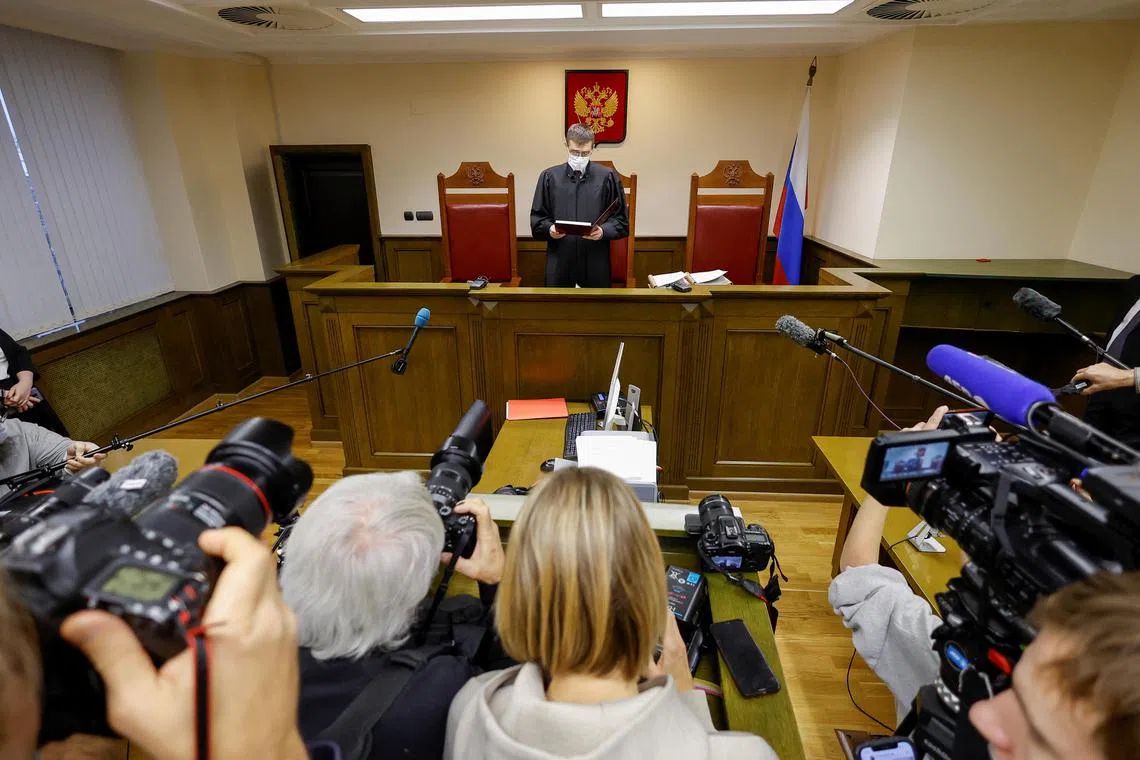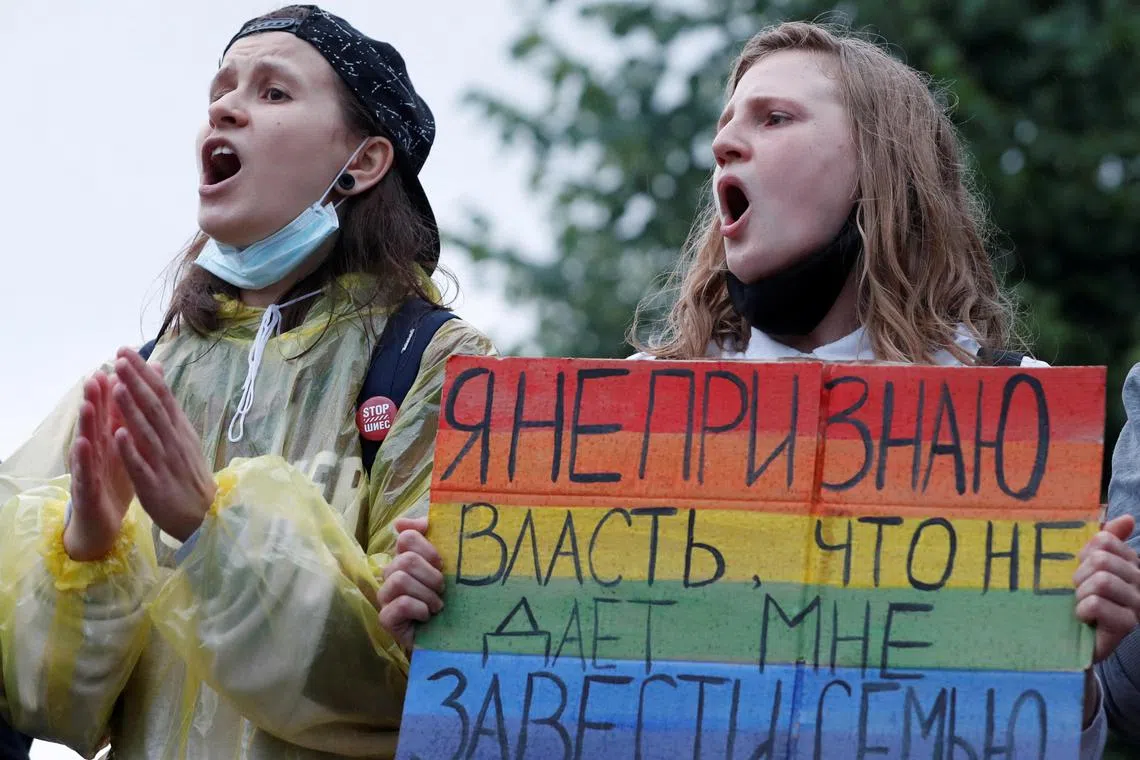Top Russian court bans LGBT movement as ‘extremist’; activists warn of crackdown
Sign up now: Get ST's newsletters delivered to your inbox

A Supreme Court judge reading out the verdict designating LGBT activists as “extremists“ in Moscow on Nov 30.
PHOTO: REUTERS
MOSCOW – Russia’s Supreme Court ruled on Nov 30 that lesbian, gay, bisexual and transgender (LGBT) activists should be designated “extremists”, in a move that representatives of gay and transgender people fear could lead to arrests and prosecutions.
The court approved a request from the Justice Ministry
The move is part of a pattern of increasing restrictions in Russia on expressions of sexual orientation and gender identity, including laws outlawing the promotion of “non-traditional” sexual relations and banning legal or medical changes of gender.
Russian President Vladimir Putin, expected shortly to announce that he will seek a new six-year term in March
In a speech in 2022, he said the West was welcome to adopt “rather strange, in my view, newfangled trends like dozens of genders, and gay parades” but had no right to impose them on other countries.
Mr Putin’s spokesman Dmitry Peskov told reporters before the court decision was announced that the Kremlin was “not following” the case and had no comment on it.
LGBT activists saw the decision as inevitable after the Nov 17 request by the Justice Ministry, which said – without giving examples – that “various signs and manifestations of extremist orientation, including the incitement of social and religious discord” had been identified in the activities of the LGBT movement in Russia.

LGBT activists taking part in a protest against amendments to Russia’s Constitution on July 15, 2020.
PHOTO: REUTERS
“Of course it’s very alarming, and I don’t remember the threat ever being so serious and real,” Mr Alexei Sergeyev, an LGBT activist in St Petersburg, told Reuters TV in an interview earlier in November.
More than 100 groups are already banned in Russia as “extremist”. Previous listings, for example of the Jehovah’s Witnesses religious movement and organisations linked to opposition politician Alexei Navalny, have served as a prelude to arrests.
Mr Sergeyev said activities such as psychological and legal support, or even “meetings where you can just sit and drink tea”, would be driven underground, depriving many LGBT people of support.
“They will either commit suicide or simply be in some terrible state. Their lives will be shortened, and their health will deteriorate. They will drink and smoke more, and so on, somehow trying to escape from this reality.” REUTERS


